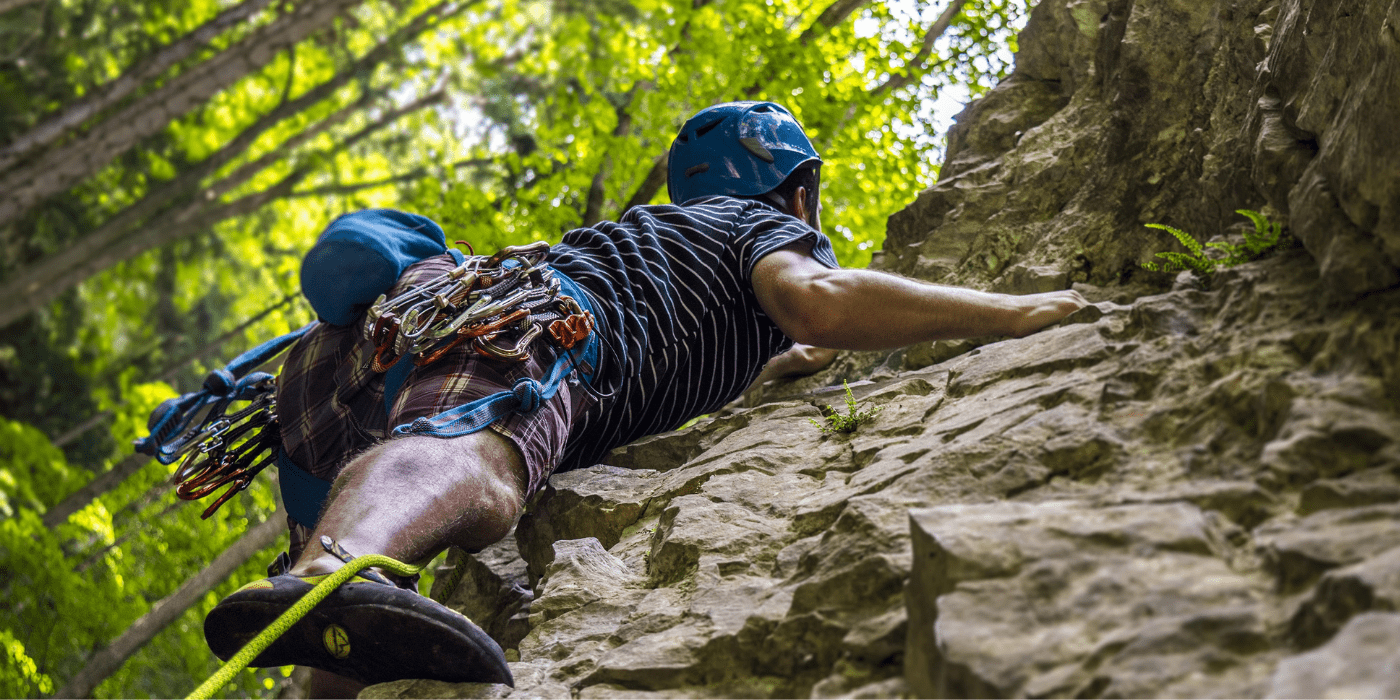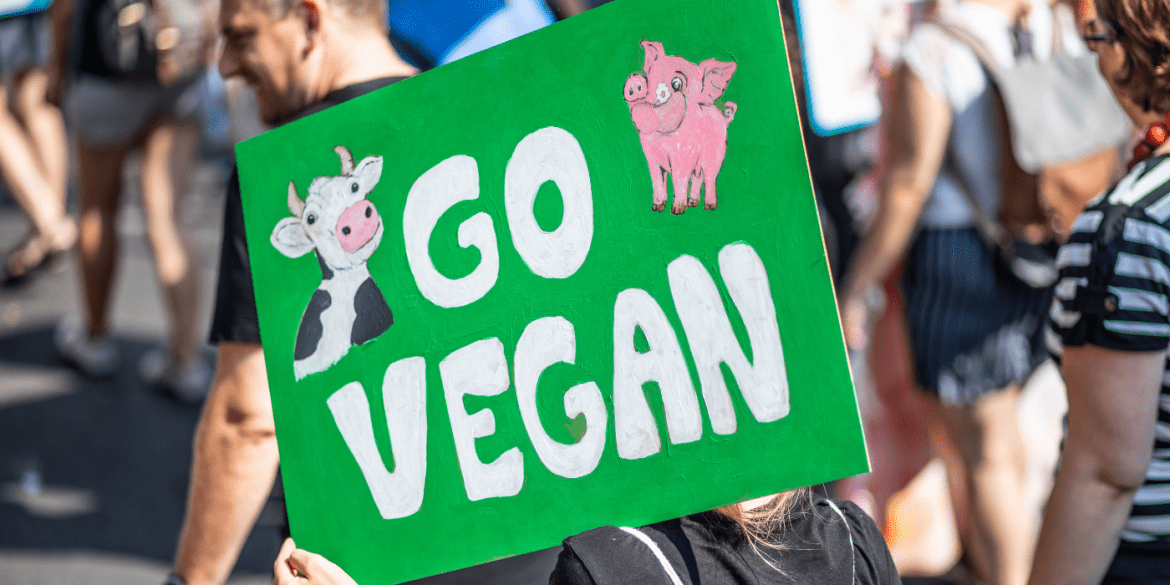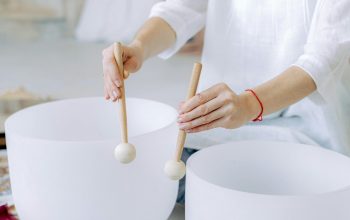Last week, a new study by EPIC-Oxford indicated that vegans and vegetarians are at a higher risk of suffering bone fractures than those who eat meat.
“Overall, we found that compared with meat-eaters, vegans had higher risks of total, hip, leg, and vertebral fractures, while fish eaters and vegetarians had a higher risk of hip fractures,” the study concluded.
According to The Vegan Society, the number of vegans in the UK quadrupled between 2014 and 2019. As more of us continue to cut down our meat intake or make the switch to plant-based, it is important to know how to do so healthily. With the annual Veganuary campaign mere weeks away, the Kingston Courier spoke to nutritionists to find out how vegans and vegetarians can maintain their bone health.
Calcium is crucial for good bone health
Clemence Cleave, a registered associate nutritionist based in Teddington, who specialises in supporting people who are turning to vegetarianism and veganism, said there are key nutrients that could be missing when you adopt a vegan diet.
“There are a few nutrients that might be not eaten in enough quantities for you to have optimal health and one of them is calcium, and calcium is crucial for your bones,” she said.
While dairy is the best source of calcium in our diets, Cleave said it can also be acquired through dairy alternative products.
“A lot of dairy alternatives such as soya milk or soya yoghurt will be fortified in calcium, and that’s how you’re going to get that nutrient.”
Cleave warns those switching to dairy alternatives to scrupulously check the labels though. Not all dairy alternatives are fortified in calcium, particularly organic ones. Making sure the alternative you select has enough calcium is important.
“To get the right amount, you should have three portions a day. We need quite a lot of calcium. We need 700 milligrams of calcium per day as adults.”
Dr Hilda Mulrooney, associate professor in nutrition at Kingston University, said it is very possible to acquire the nutrients needed for good health through a vegan diet.
“There’s no necessity for vegans to necessarily have lower intakes of these nutrients, it’s just planning to make sure that they’re in there really,” she said.
Alongside fortified dairy alternatives, Mulrooney lists a number of other foods that should make up part of a healthy vegan diet.
“There are rich sources of calcium that vegans can have. So if they’re thinking about calcium, in particular, soy beans, peas, beans, lentils, sesame seeds, tahini, calcium like tofu – even brown and white bread in the UK have calcium added to them,” she said.
Other vegan sources of calcium include dried apricots, okra, figs, cabbage and broccoli.

A lack of calcium can lead to bone disease
A lack of calcium in our diets can lead to bone disease osteoporosis, said Cleave.
“The thing with calcium is that they [people lacking calcium] won’t see many changes instantly, but later on in life, they will suffer from osteoporosis, and they will be more at risk of bone fracture. Lack of calcium takes time to be revealed,” she said.
“Once you realise that you’ve got osteoporosis it’s going to be really hard to reverse that.”
However, the EPIC-Oxford study, which tracked 55,000 participants over an average period of 18 years, was adjusted for dietary calcium intake, with the difference in fracture rate remaining significant. This suggests that a vegan’s lifestyle must include more than just the right amount of calcium in their diet in order to avoid bone fractures.
“The higher risks of fractures especially in the vegans remained significant after adjustment for dietary calcium and protein, which suggests that these factors may at most only partly explain the differences in fracture risks by diet group,” the study states.
Intake of vitamin D is also crucial for good bone health, with the Royal Osteoporosis Society stating on its website: “Vitamin D helps your body absorb and use calcium, which gives your bones their strength and hardness.”
Mulrooney said that Covid-19 has prevented all of us from getting the right levels of vitamin D, not just vegans and vegetarians. Spending more time indoors meant fewer opportunities to obtain this crucial vitamin, which we get through exposure to the sun.
Last week, the Government announced that 2.7 million vulnerable adults in the UK would receive free vitamin D supplements to counter this likely deficiency.
“Because of Covid-19 and the lockdown it would be wise for people, I think generally, to be taking 10 micrograms a day, because even in the summertime, many of us won’t have been making enough vitamin D so we’re probably already at a deficit, to be honest,” she said.
The NHS recommends 10 micrograms of Vitamin D a day between October and March, while Public Health England advises everyone to take a vitamin D supplement during winter months.
Both Mulrooney and Cleave think that maintaining good bone health while vegan requires numerous considerations beyond calcium and vitamin D.
Vitamin B12 is also essential
Vitamin B12, which is usually obtained through meat, fish and eggs, can help to ensure good bone health.
“If you remove all animal-based products from your diet, you need to make sure that you get the vitamin B12 somehow,” Cleave said.
Vitamin B12 is accessible through fortified foods such as fortified cereals and non-dairy milk. Nutritional yeast is another great vegan-friendly source. However, for vegetarians and vegans, vitamin B12 supplements are also recommended.
Protein can also help strengthen bones, and Cleave believes it is certainly possible to get enough protein in a vegan diet.
“You can get enough protein from a vegan diet, it’s not a problem at all, but it requires you to eat a tiny bit more than if you were a meat-eater,” Cleave said.
Protein can be found in pulses such as lentils, beans and chickpeas. Cereals are also an important source of protein. Cleave said that together they can provide the building blocks needed for essential amino acids, which help to lower the risk of osteoporosis, particularly for women.
Exercise can make all the difference too
Lastly, both Cleave and Mulrooney emphasised that exercise plays a key role in ensuring our bones are strengthened and maintain optimum health.
“We’re a far less active population than we used to be,” Mulrooney said.
“With anything nutritional, it’s always worth thinking about the other side of things. Weight-bearing exercise is really important for muscle and bone strength and health.”

The NHS recommends a number of different exercises depending on age, from rock-climbing to skipping.
So, whether you are simply considering cutting out some meat products or are taking the full plunge into veganism, knowing how to replace the nutrients you will lose is essential.
It takes time, planning and research to establish what you need to consume under a vegetarian or vegan diet, but it is possible, and it is important.
“Anyone on a restrictive diet should be considering where to get the right nutrients from. Otherwise, it’s a risk not a benefit to health,” Mulrooney said.
“There is no reason why people following a vegan diet can’t follow a healthy vegan diet.”
For further advice, take a look at The Vegan Society’s online resources.






